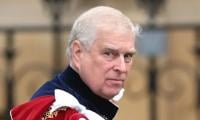ISLAMABAD: President Donald Trump has finally made a decision on his new policy for Afghanistan and the region but is keeping it under wraps, though the White House says an official announcement in this regard will be made shortly.
There is certainly no good news for Pakistan with several US media outlets reporting that officials are speaking about Trump’s strategy which sees sending nearly 4,000 additional troops to Afghanistan while all military aid to Pakistan could also be stopped.
Trump an addict of Twitter through which he announces all major policy decisions said in a Tweet, “Important day spent at Camp David with our very talented Generals and military leaders. Many decisions made, including on Afghanistan”.
However, the Foreign Policy has reported that one of the reasons that draws Trump into this land-locked country is “abundant natural resources”.
The FP speaks about a meeting in July with the head
of an American chemical company that transformed his view of the US military presence in Afghanistan.
Exploiting the country’s abundant natural resources could result in an incredible economic windfall, Trump was told.
The publication points out that it was in this meeting that “Trump learned of the enormous wealth buried beneath Afghan soil: perhaps more than $1 trillion in untapped mineral resources in the form of copper, iron, and rare-earth metals.”
“Trump wants to be repaid,” said a source close to the White House. “He’s trying to see where the business deal is”, notes FP.
According to the publication in May, Erik Prince published an op-ed in the Wall Street Journal calling for an “East India Company approach” with a “viceroy” and private contractors.
Prince, whose idea captured the eye of Trump’s chief strategist, Steve Bannon, and other officials, was invited to the White House to outline his ideas.
Prince has since presented his case to lawmakers on Capitol Hill and in a Washington media blitz, arguing that it’s time for a new model after years of failure and frustration.
The tantalizing idea that Afghanistan’s mineral potential could transform the country and save the fragile Kabul government has proved elusive.
Gen. David Petraeus, who was commander of US-led troops in Afghanistan in 2010-2011, touted the country’s mineral wealth as offering “stunning potential.” But Afghanistan lacks the infrastructure of roads, trains, and bridges needed to extract the minerals, not to mention the security required to ensure private companies can operate safely the report adds.
Coveted rare-earth minerals in Afghanistan are located in Helmand province in the country’s southwest, most of which is now controlled by Taliban.
Moreover, commodity prices for iron and copper have sharply declined in recent years, and the Afghan government has been accused of corruption in some of its mining ventures.
“Whichever military proposal wins out, the mining idea remains a top priority for Trump. Commerce Secretary Wilbur Ross is currently conducting an overall assessment of mining opportunities in Afghanistan, while Tillerson, the former head of ExxonMobil, is looking at whether the country would be stable enough for long-term American investments”, notes FP.
Silver, the chemical executive who pitched Trump on the idea, said Afghanistan’s mineral wealth could provide a similar boost to the one China experienced during the 1990s.
“When China opened to the world in the early ’90s under Deng [Xiaoping]’s policy of global engagement, the sale of minerals formed the backbone of their GDP growth,” Silver told FP.
But the report cautions that though “Trump may want a deal that brings peace to Afghanistan, paving the way for economic opportunities, but it’s unclear how the White House believes it can persuade Kabul, regional powers, and key players — including Pakistan, Iran, China and Russia — to help broker a peace agreement.”
During hearing, 41 accused, including provincial Minister Meena Khan and MNA Asif Khan, appeared before court
Peshawar City Senior Vice President Malik Aslam and General Secretary Taqdeer Ali resigned from their posts
As token of appreciation, KP Culture and Tourism Authority presented them with traditional shawls
Building fires are common in India due to lack of firefighting equipment and routine disregard for safety regulations
He was speaking at United Nations Climate Change Conference in Baku, Azerbaijan
Buried in debt, developing countries do not want the money to come in the form of loans







